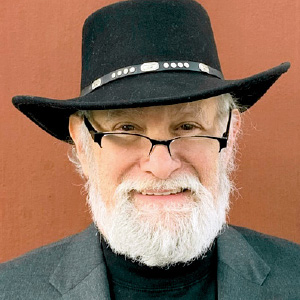
Beyond the unique situations and circumstances related to law enforcement, just like everyone else, police officers are also subject to the full range of mental and emotional health concerns. In addition to facing all the risk factors, stressors and difficult life situations as other adults, LEOs often encounter more demanding situations than the general population, resulting in considerably more anxiety and stress.
According to the Law Enforcement Officer Fatalities Report of 2021, 458 federal, state, tribal and local officers died in the line of duty, while suicide claimed another 150 officers across the U.S. as well.
According to the CDC, police personnel are 54% more likely to commit suicide than the average American. It is also estimated that 18–24% of dispatchers, in addition to 35% of LEOs, suffer from PTSD, or post-traumatic stress disorder. As a result, many first responders turn to alcohol and other destructive and self-abusive behaviors in an effort to cope with the stresses and traumas that they deal with on a regular basis.
PTSD may show up as chronically tense muscles, frequent headaches, faster-than-normal breathing, increased heart rate, uncontrollable trembling and sweating, generally feeling weak and tired, difficulty sleeping and a frequently upset stomach or nausea.
Anxiety is generally characterized as feelings of tension and worried thoughts and may be accompanied by increased blood pressure, sweating, trembling, dizziness and rapid heartbeat, and may include recurring, intrusive threatening thoughts and fears. According to the American Psychological Association, some degree of anxiety is common for most people but is considered a disorder if it persists for longer than six months. Serious medical problems can result from long-term anxiety, including diabetes and heart irregularities. Over 40 million American adults have ongoing anxiety, with 30% experiencing clinical anxiety disorders.
Like anxiety, stress is a common biological response that can cause physical, emotional or psychological strain, often due to circumstances requiring extreme concentration and arduous activity and the presence of bodily threats. Everyone experiences such pressures occasionally, but LEOs are likely to encounter persistent stress more often, which can create a negative impact on one’s well-being. The World Health Organization reports that trying to ignore stress often leads to significant mental and physical issues.
In 2022, 76% of U.S. adults reported various ongoing impacts from stress, including headaches, fatigue, nervousness and sadness. In addition, persistent anxiety and stress are also related to chronic conditions, such as gastrointestinal issues, heart disease, migraines and sleep problems.
Everyone gets sad from time to time, but persistent melancholy, with constant feelings of downheartedness and detachment, can develop into a major depressive disorder. The National Institute of Mental Health reported (tinyurl.com/2p9xjmtj) that 21 million Americans had at least one major depressive episode last year, and two-thirds of those developed a severe, persistent condition. Depression often leads to sleep disruptions, heart disease, unhealthy weight fluctuations, a weakened immune system and even physical pain.
There are a number of fairly simple, evidence-based practices that are easy to do, scientifically substantiated and have long been proven to be beneficial for addressing anxiety, stress and depression. Through regular practice, improvements in one’s mental and emotional state are highly likely.
In the 1930s, educator Kurt Hahn proved that by simply getting out into nature, we can improve our physical, mental and emotional health with such activities as walking in the woods, camping out or just being immersed in a physically beautiful environment. Hahn’s findings have since been upheld by numerous scientific studies over the years and led to the creation of Outward Bound, a therapeutic program designed for youth at risk.
The Japanese practice called shinrin-yoku (“forest bathing”) includes hugging trees, listening to birds singing and kicking through leaves, all proven to boost mental health. Trees also emit phytoncides, chemicals that can help boost our immune system. Such forest therapy is also becoming a recognized remedy throughout the world, supported by a number of scientific studies that confirm its beneficial effects, just as Hahn established in the 1930s.
Some 3,000 years ago, people in southern Asia began developing the simple relaxation and mindfulness techniques of yoga, and their beneficial effects have been well established by modern science. Numerous in-depth studies since the 1970s have further illuminated how yoga can promote a sense of well-being while improving physical health and reducing tension and stress, thereby enriching our psychological and emotional state. Mental, behavioral and physical health practitioners worldwide routinely prescribe similar techniques to treat anxiety, stress and depression. Yoga does not require any special physical prowess or stamina and could easily be learned from books or video clips. However, to be certain of correct posture alignments, an introductory yoga class or two is advisable.
Arguably, the easiest, most accessible exercise for addressing anxiety is brisk walking, which is an energetic stride with some exertion but not quite running. This has been proven to be especially effective when done in a heavily wooded area. However, even in urban environments, the confirmed benefits of brisk walking for about 40 minutes daily include stress relief, improved sleep and increased calm, among other healthy outcomes.
Deep relaxation is even easier than walking, as it involves no physical movement at all, although beginners may need to learn how to stay awake. This involves lying on one’s back upon a comfortable surface, with arms and legs slightly apart, and then consciously relaxing each part of the body as completely as possible, from the tips of the toes up through to the top of the head, while staying fully awake and aware. After becoming comfortable with the protocol, it is possible to relax one’s entire body at will within seconds.
Mindfulness, a related practice, involves comfortably sitting or lying down and purposely centering one’s attention on the present moment. By focusing on the here and now, those who regularly practice mindfulness are less likely to worry, feel anxiety or have regrets. Harvard studies (tinyurl.com/38skf37s), among others, have proven that mindfulness can be highly effective in reducing stress, lowering blood pressure, relieving chronic pain and improving sleep. Again, a formal class or two is advisable to start off.
Of all the simple techniques presented here, humming may seem the least likely method to produce meaningful results. However, as reported by the Mayo Clinic, the scientific evidence is substantial and conclusive. Even just five minutes of continual humming is much more than just a self-soothing sound, as it also can reduce stress, induce calmness and enhance sleep, as well as lower one’s heart rate and blood pressure and boost beneficial neuro-chemicals that elevate mood … and no particular musical skill is required.
Group drumming is another simple practice requiring no advanced musical talent. One study conducted by the Royal College of Music (tinyurl.com/4823w8sf) confirmed numerous positive effects of group drumming, including reducing depression by as much as 38% and anxiety by 20% while improving social resilience by 23% and mental well-being by 16%. These benefits were still being experienced months after the study.
Another element of self-care that belongs on this list is limiting the intake of stimulants, such as caffeine and processed sugar, omnipresent substances in much of what we consume and well known for substantially contributing to anxiety, stress and mood dysregulation. That momentary joy of a candy bar or the quick jolt from a caffeinated beverage takes a toll on our sense of well-being in the long run. Eliminating such habits is well worth the effort if one wants to reduce stress and anxiety.
As seen in the November 2023 issue of American Police Beat magazine.
Don’t miss out on another issue today! Click below:






